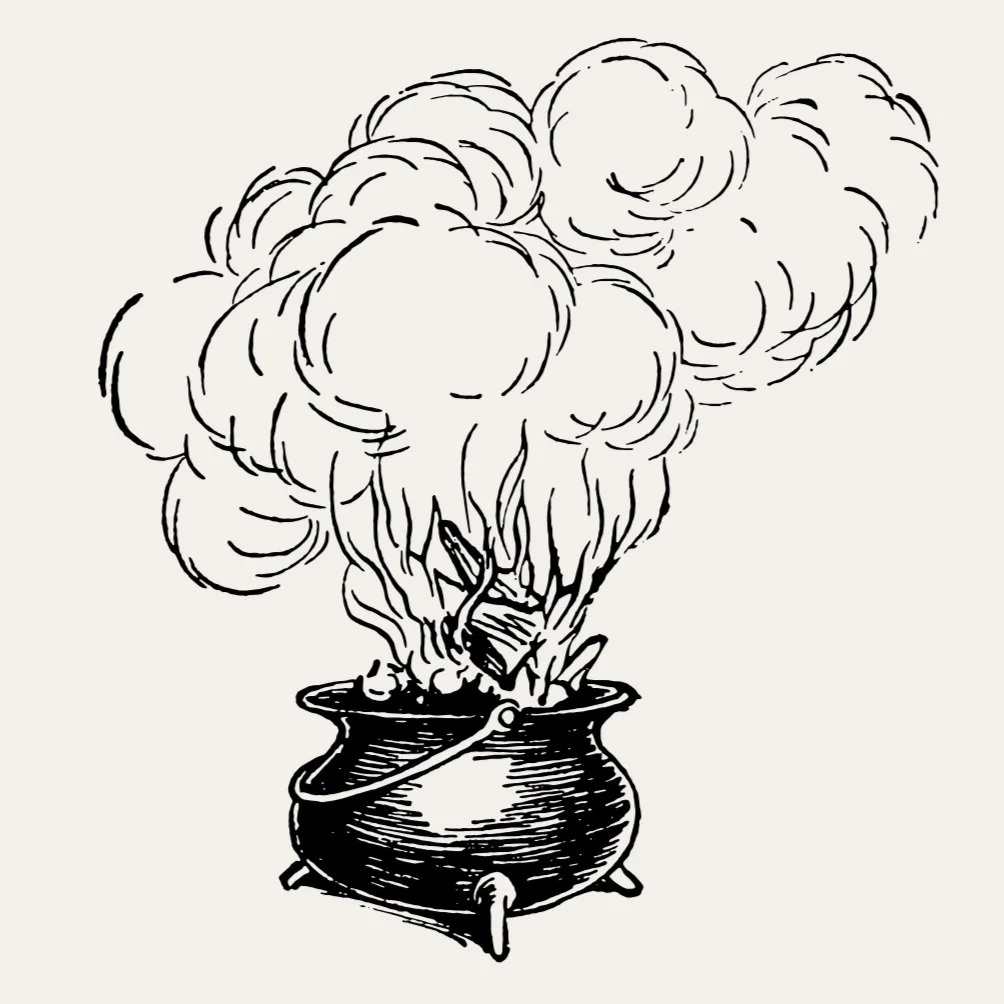The Spleen in TCM
The Spleen in Chinese medicine plays a major role in metabolism and digestion; It’s most praised and salient function is transportation and transformation of food. In western medical terms, we can think of the Chinese Spleen akin to the function of the Western pancreas.
Digestion according to TCM
Digestion and metabolism, according to TCM, largely involves the Spleen, Stomach, and Kidneys. My favorite way to simply breakdown this complex energetic process is the cauldron analogy.
The Stomach is responsible for receiving food (this is the cauldron) and sending it downwards to the Small intestine, which separates what we need and what we do not (waste)
The Kidneys provide the metabolic basis to be able to break down or “cook” our food (think the fire under our cauldron)
The Spleen plays a more ambiguous role in that it embodies the functionality of our digestive system, this can be compared to hormonal and enzymatic processes that are so necessary to break food down in a way that we can easily absorb it.
The Spleen out of balance
When our Spleen’s function is impaired, we are not able to assimilate nutrition from the food we eat, no matter the quality of the ingredients. This has widespread effects and can result in impairment not only digestive function but also fluid metabolism, hair and skin health, our menstrual cycle, and our immune system.
Some symptoms likely associated with Spleen Qi deficiency include:
Low energy
Loose stools
Bloating and fatigue after eating
Dull skin
Weight gain and water retention
Symptoms of excess burdening the Spleen and Stomach include
Nausea
Heartburn
Gas and belching
Painful bloating
Foul breath
Hot or smelly stools
How do we support the Spleen
If you are struggling with these symptoms, here are some things you can do to support the Spleen according to TCM, and why
Eat a warm breakfast in the morning
According to TCM, our digestion is strongest in the morning between 7-11am (Stomach and Spleen time), adding a warming breakfast helps fuel this digestive fire, jumpstarting our Qi flow for the day and providing adequate fuel to do so
Eat regular meals
Intermittent fasting may work for some, but in TCM we like to have our patients focus on eating at a regular schedule so the body is not thrown into a state of stress that there is food scarcity, making digestion slow down
Walk after eating
Avoiding laying down and doing some light activity after meals promotes the descending function of the Stomach, aiding in digestion so that the body can then focus on actually breaking down and assimilating our food (the Spleen’s job)
Avoid excessive cold foods and dairy
It is always a buzzkill to hear, but if you are trying to work on strengthening your digestion, drinking an excess of iced drinks and consuming too much dairy will only burden the digestive system
This brings me back to the cauldron analogy; if you are trying to break down food in a timely and effective manner, throwing iced coffee into the pan will only slow digestion down
Seek support
Digestive issues can take a long time to treat – this is due either to a genetic or constitutional component, or to the fact that they have been forming for a long time due to environmental or lifestyle factors
Seeking nutritional counseling, talking to your physician about your symptoms, or seeking acupuncture are all valid and necessary responses to these symptoms; you deserve to feel your best
Acupuncture has a great reputation in supporting digestive health and it is always considered no matter what your health goals are because it is so foundational

